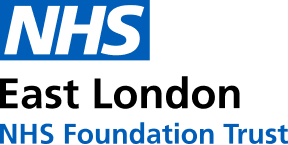Who we are
The Children’s Physiotherapy Team provide a child centred service to children who are registered with a Newham GP, under the age of 18, and who have a physical disability, condition or concern that impacts on their development and functional daily activities at home or in school. Sometimes only one appointment is needed and sometimes we are involved with the child until adulthood.
A children’s physiotherapist has an understanding of:
- child development
- childhood diseases and conditions that may impact on development and well being
- therapeutic interventions that enable and optimise development and well being
- the need to place the child at the centre of planning
- the impact that having a sick or disabled child has on family life
- how to keep children safe
- how to ensure that children and young people make choices
- how to develop their own skills and practice
- how to develop services in line with Government guidance committed to improving quality and life chances for children
What we do?
We assess and treat to promote independence and help every child achieve their physical potential. We see children in clinic, in their homes, at schools/nurseries and children’s centres depending on the needs of the child and family. We are also now able to offer appointments via video and telephone consultations.
Our treatment is based upon an assessment of the child’s needs. This may include:
- advice, reassurance and recommendations
- personalised activity or exercise programmes
- positioning and handling
- providing specialist equipment
- serial casting and orthotics
- referrals to other Professionals
Who do we see?
We see children who are registered with a Newham GP and aged up to 18 years old. There are many children who may benefit from physiotherapy with a huge range of problems or conditions.
The most common conditions we treat are:
- Neurological conditions e.g. cerebral palsy, acquired brain injury or stroke
- Neuromuscular conditions e.g. muscular dystrophy
- high risk infants due to traumatic birth history or prematurity,
- Syndromes and metabolic diseases e.g. Down syndrome
- Congenital abnormalities e.g. talipes, torticollis, spina bifida
- Delayed motor skills e.g. rolling, crawling, sitting, walking
- Concerns with walking or posture and developmental variations
- Community rehabilitation following planned hospital admission or surgery
- Rheumatological conditions for community access needs
- Musculoskeletal concerns under the age of 10


